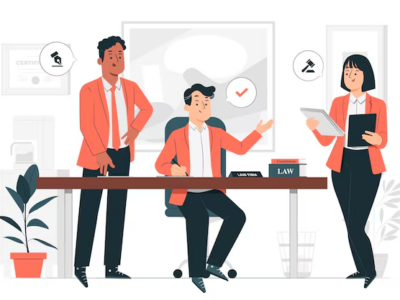The personal injury lawyer is an expert in insurance law and wants to learn how to make money as a lawyer. It plays an important role in helping victims of accidents, such as road accidents. Throughout the compensation process, he can be at the victim’s side so as not to leave him alone with the insurance, whether it is his own or that of a driver at fault. Its objective is to allow him to obtain fair compensation commensurate with the damage suffered and not to leave him alone with the insurer (and his inspectors).
Why hires a lawyer?
Following an accident, the victims often find themselves in a delicate situation. They have to take care of their recovery, sometimes with difficulty carrying out essential daily tasks, while completing formalities that can prove to be complex, linked to their compensation. This situation of fragility is not to their advantage. This may justify calling on a lawyer who can rebalance the balance of power with the insurance to obtain the best possible compensation and who will take care of all the “administrative” aspects, the heaviness.
What Is His Role?
The lawyer plays a fundamental role when he accompanies the victims of accidents who face refusals or difficulties of compensation. It allows victims to be properly advised and not to accept any offer of compensation. Here are his main actions with the victim:
- Explain the situation, the issues, and the procedures, as well as the deadlines
- Accompany the victim on all stages of the procedure, both on the administrative part and the judicial aspects
- Record all damage suffered. Have them independently assessed. Quantify the damage.
- Negotiate with the liable third party and their insurer, and advise the victim to arrive at a satisfactory solution
- Possibly bring the file before the judge in case of failure of the negotiations.
What Interest For The Victims?
Insurance law and compensation procedures for bodily injury victims can be complex. It should also be remembered that there is no common accident, standard damage, and standard compensation. Even if scales exist, each situation is unique. Thus, when the victim of an accident receives an offer of compensation, it is often difficult for him to assess it, and he may ask many questions.
Have all damaged items been taken into account? Are the amounts of compensation proposed for each of the damages sufficient? How many accident victims with similar damages are affected when negotiating compensation out of court? And when do they take the case to court? When he is an expert on these subjects, the lawyer gives the victim the benefit of his knowledge and experience to help him see things more clearly, answer his questions and make choices in the face of the proposals. ‘Compensation or visit website. The lawyer also takes care of the administrative procedures that the compensation beneficiary must complete.
- Appointment of an expert
- Review of the patient’s medical record
- The interview with the patient
- Drafting of the expert report
In practice, it is recommended to do everything to try to negotiate as well as possible with the insurer by going through a so-called “amicable” expertise by being assisted by a medical adviser at his side as an expert with the lawyer.
If the conclusions of the “amicable” expertise are not satisfactory, then there will remain the possibility of seizing the judge to request “judicial” expertise; the Court will then appoint a doctor to examine the sequelae and describe their extent and their consequences.
The third step is to calculate the amount of compensation. This calculation considers various factors such as loss of income, length of hospitalization, medical costs, and suffering endured. It should be noted that the law does not define any scale. Insurers and judges, however, rely on indicative scales. Both are free to determine the amount of compensation.
Internet sites offer simulators that are based on case law. If they can give an idea of the amounts, it must be remembered that each situation, each accident, and each damage is unique. The quality of the expertise, the presentation of a file, and the work of the lawyer can strongly influence the final amounts, and the lawyer has tools for analyzing mass court decisions (with multi-criteria searches on several million court decisions corresponding in particular to the case of the defendant victim) to try to refine the amount of the claims as well as possible.
The fourth step is to request and receive compensation from the insurer of the person responsible for the damage, which can be done following an amicable settlement or through legal proceedings.













